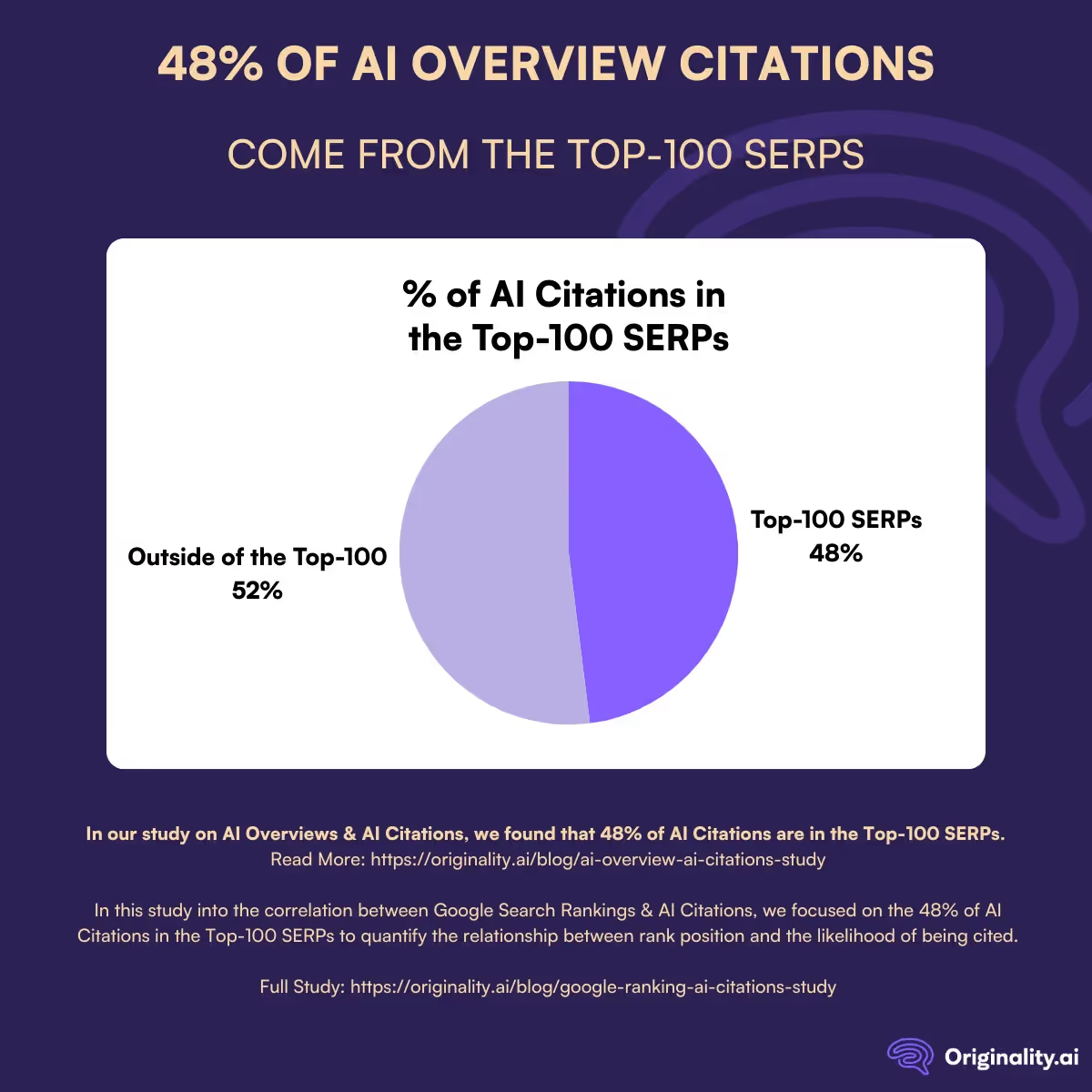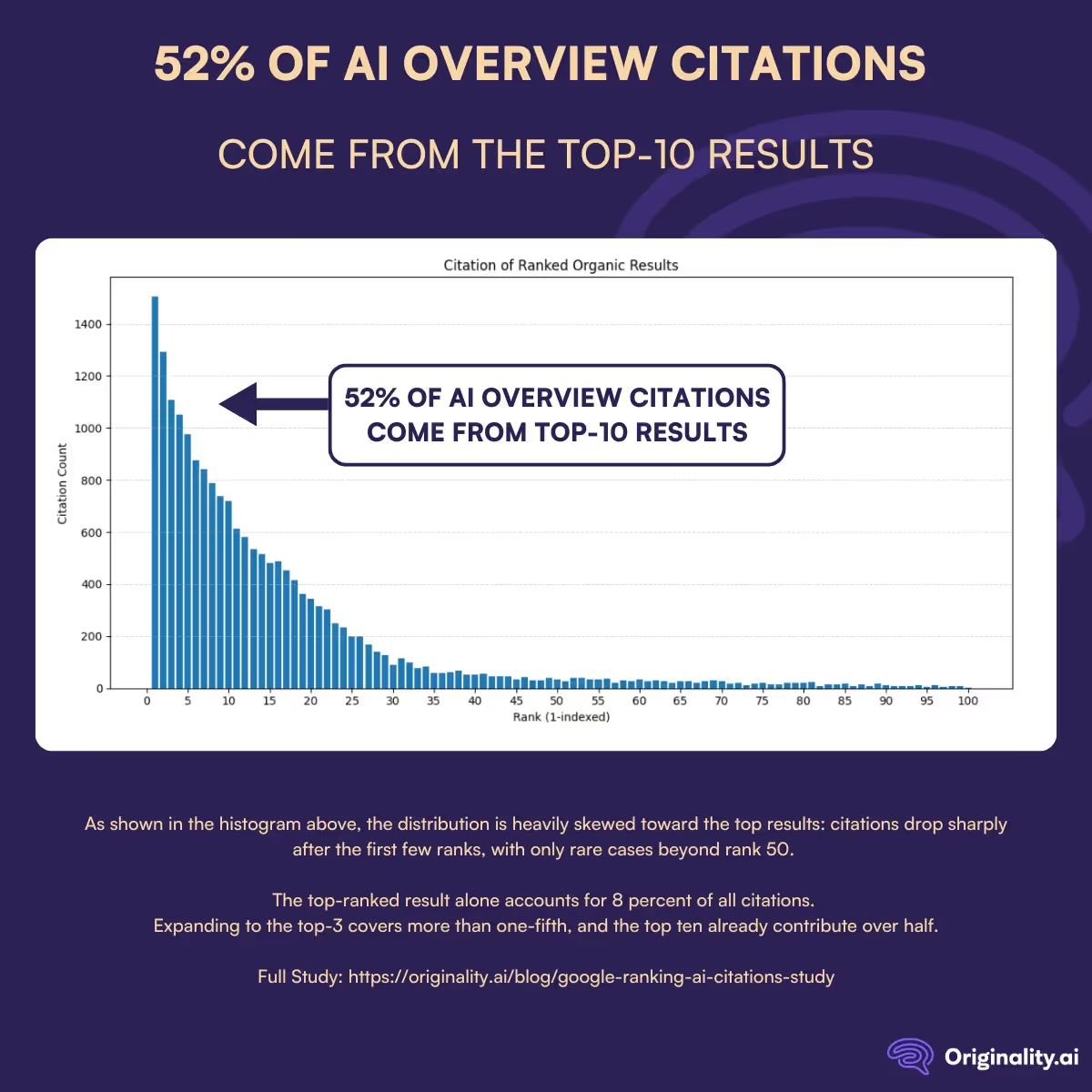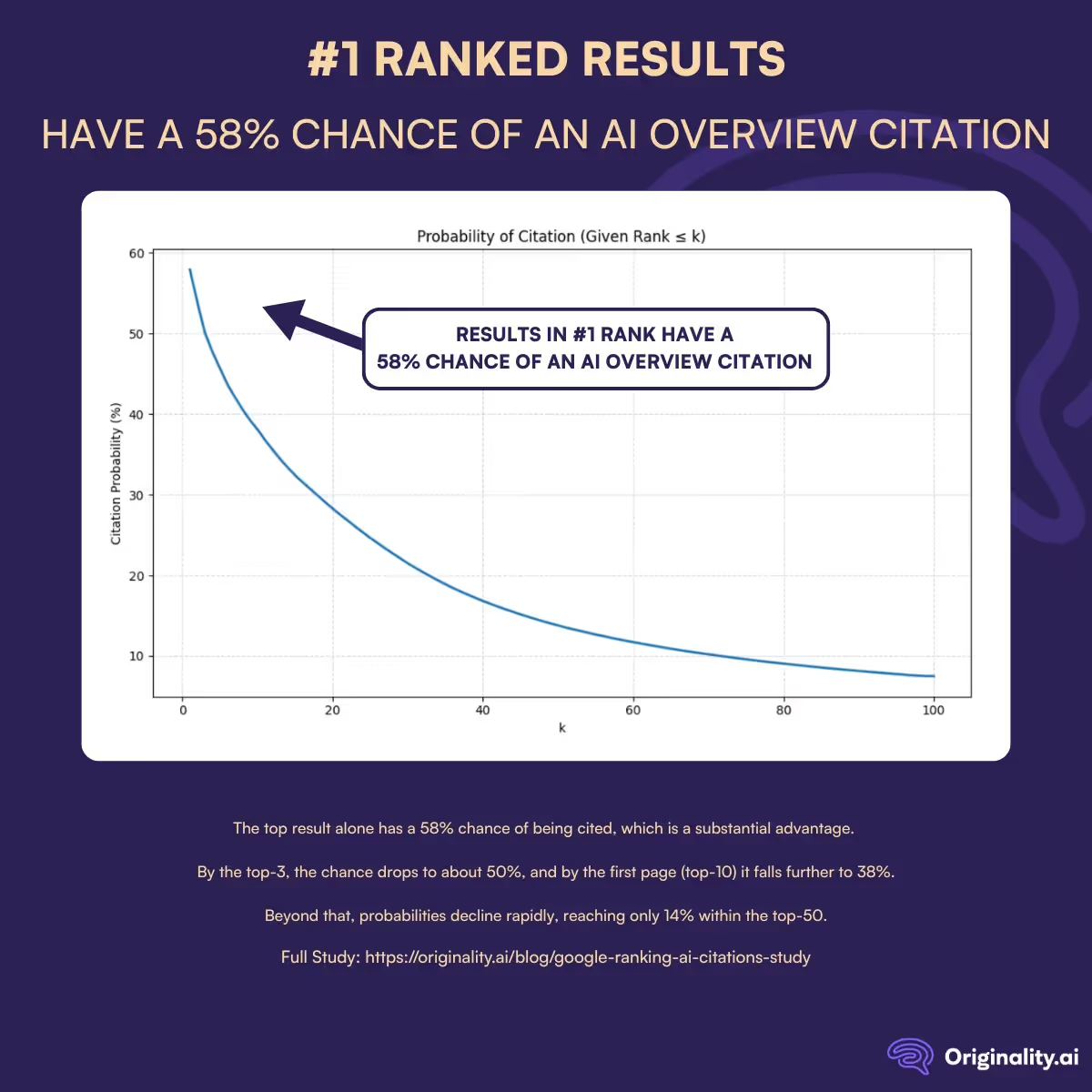With AI Overviews making a noticeable impact on search, and Google AIOs now appearing in 18% of searches (according to the findings of five studies), we wanted to get further insight into where these citations were coming from in Google organic search results.
To answer this, we focus only on organic citations (citations that appear both in the AI Overview and within the top-100 organic Google results for the same query).
We use the same dataset and responses as in our earlier study; 10.4% of citations are AI-generated.
From that dataset, we looked only at citations that overlap with the top-100 organic search results for a given query.
Other citations (52% of the total, which came from outside the top-100 SERP results) are excluded from this analysis, as they do not have an inherent rank to compare.
Overall, 48% of citations in AI Overviews overlap with the top-100 organic search results.

The remaining 52% originate from sources that do not appear in the Top-100 ranked SERP, and therefore lack a comparable notion of “rank.”
Focusing on the 48% of AI Citations in the Top-100 SERPs allows us to quantify the relationship between rank position and the likelihood of being cited.
We begin with a simple histogram that shows how often documents at each rank were cited.
The distribution is heavily skewed toward the top results: citations drop sharply after the first few ranks, with only rare cases beyond rank 50.
This highlights the strong link between ranking position and likelihood of citation.

To complement this view, we examined the cumulative share of citations as we move down the ranks.

Share of citations covered by top-k ranks:
The top-ranked document alone accounts for 8 percent of all citations.
Expanding to the top-3 covers more than one-fifth, and the top ten already contribute over half.
By the time we reach the top 30, nearly 90 percent of all citations are accounted for, leaving only a small fraction distributed across lower ranks.
So far, we looked at the share of citations coming from the top-k ranks.
Next, we turn to citation probability: given that a document appears at or above a certain rank, what is the chance it will be cited in a Google AI Overview?
Formally, we compute:
P(cited | rank ≤ k) = (# citations in 1…k) / (# documents in 1…k)
The figure below reports these probabilities for values of k from 1 to 100.

Here are the numerical results for selected values of k (ranking):
The top result alone has a 58% chance of being cited, which is a substantial advantage.
By the top-3, the chance drops to about 50%, and by the first page (top-10), it falls further to 38%.
Beyond that, probabilities decline rapidly, reaching only 14% within the top 50.
This shows that AI Overviews strongly favor higher-ranked results, with the majority of citations coming from the first page.
Our analysis shows that AI Overviews strongly favor top-ranked results. The higher a document’s position in Google Search, the more likely it is to be cited.
For top publishers, this is a major advantage: they already get visibility in the SERP, and now they are the most likely to appear in AI-generated summaries as well.
For lower-ranked or newer sites, this creates a real challenge. The gap between being on the first page and beyond is dramatic, and AI Overviews make that gap even wider.
In practice, this means authority and attention become more concentrated among a small group of sources.
The bigger question is what this does to the web over time. Does it lead to a system where only the most “trusted” sources dominate, or does it reduce diversity by silencing pages and content that do not rank as highly?
If AI Overviews continue to lean this heavily on rank, the future of search may be less about finding new perspectives and more about reinforcing the same ones.
Maintain transparency in the age of AI with the Originality.ai AI Checker.
Then, learn more about AI Search and AI Detection Accuracy:

MoltBook may be making waves in the media… but these viral agent posts are highly concerning. Originality.ai’s study with our proprietary fact-checking software found that Moltbook produces 3 X more harmful factual errors than Reddit.